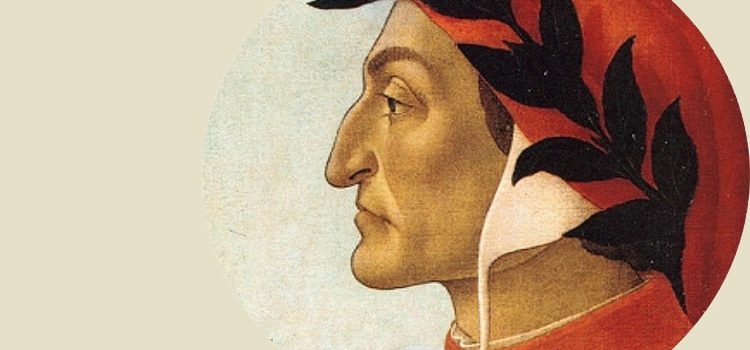КРАТКАЯ ИСТОРИЯ ИТАЛЬЯНСКОГО ЯЗЫКА
Эта статья о
Итальянский язык: молодой язык с многовековой историей
Истоки итальянского языка
Между 3000 и 1000 гг. до н.э. население индоевропейского происхождения прибыло из Центрально-Восточной Европы и смешалось со средиземноморскими народами, в том числе с теми, которые населяли Апеннинский полуостров (этруски, лигуры, сардинцы и др.). Некоторые из них поселились в регионе Лацио и основали Рим.
Латынь и зарождение романских языков
Люди этого населения назывались латинянами, и, смешав средиземноморские и индоевропейские слова, эти слова дали начало латыни. Когда древние римляне завоевывали территории полуострова, их язык смешался с ранее существовавшими языками. Латынь также повлияла на другие языки, на которых говорили европейские народы, что привело к появлению новых романских языков (испанский, французский, португальский и румынский).
Диалекты, Тоскана и Флоренция
С распадом Римской империи, в то время как латынь продолжала использоваться в качестве литературного языка в Риме, в разных регионах Италии начинают развиваться народные языки, на которых говорили люди. В конце первого тысячелетия центральное положение Тосканы по отношению к Апеннинскому полуострову благоприятствовало торговле между Римом и остальной Европой, в частности Флоренция, которая являлась важным пунктом торговли.
Великие тосканские писатели средневековья
Вместе с экономическим развитием развивалась и культура, которая породила тосканских писателей, таких как Данте, Петрарка и Боккаччо. Они написали множество прекрасных и важных произведений на флорентийском языке, которые быстро распространились по стране и стали очень известны во всей Италии, став образцом для писателей, родившихся в последующие века.
Флорентийский диалект как культурный язык
Вклад в развитие флорентийского диалекта вносит и тот факт, что он использовался вместо латыни также великими тосканскими учеными и художниками (Леонардо да Винчи, Галилео Галилей, Микеланджело, Боттичелли, Макиавелли и др.). В других регионах Италии из-за низкой грамотности продолжали говорить на народных диалектах.
Распространение Флорентийского в Италии
В середине 1800-х годов, когда Италия была территорией завоеваний, оспариваемой французами, испанцами и австрийцами, желание итальянцев освободиться от захватчиков и стать независимой страной возросло. Многие писатели решили использовать флорентийский язык в качестве единственного национального языка для написания своих произведений.
Итальянский язык и объединение Италии
Одним из наиболее значимых произведений стал роман «Обрученные», написанный миланским писателем Алессандро Мандзони. Данный исторический роман сыграл ключевую роль в Рисорджименто, национально-освободительном движении, которое привело к объединению итальянских регионов в единое независимое государство с объединением Италии в 1861 году.
Итальянский язык и диалекты
В то время как по всей Италии итальянский язык стал единственным культурным письменным и устным языком, из-за бедности региональные диалекты породили второй разговорный язык: диалект, различный в каждом регионе Италии, более выраженный в южных и северных регионах.
Итальянский язык, на котором говорят все итальянцы
С окончанием Второй мировой войны, благодаря сильному экономическому росту 50-х и 60-х годов и сильной политической воле, направленной на то, чтобы сделать итальянский народ грамотным, все итальянцы смогли ходить в школу и общаться на одном языке: итальянском.
Istituto Il David - Школа итальянского языка - Флоренция
Итальянский язык: молодой язык с многовековой историей
Истоки итальянского языка
Между 3000 и 1000 гг. до н.э. население индоевропейского происхождения прибыло из Центрально-Восточной Европы и смешалось со средиземноморскими народами, в том числе с теми, которые населяли Апеннинский полуостров (этруски, лигуры, сардинцы и др.). Некоторые из них поселились в регионе Лацио и основали Рим.
Латынь и зарождение романских языков
Люди этого населения назывались латинянами, и, смешав средиземноморские и индоевропейские слова, эти слова дали начало латыни. Когда древние римляне завоевывали территории полуострова, их язык смешался с ранее существовавшими языками. Латынь также повлияла на другие языки, на которых говорили европейские народы, что привело к появлению новых романских языков (испанский, французский, португальский и румынский).
Диалекты, Тоскана и Флоренция
С распадом Римской империи, в то время как латынь продолжала использоваться в качестве литературного языка в Риме, в разных регионах Италии начинают развиваться народные языки, на которых говорили люди. В конце первого тысячелетия центральное положение Тосканы по отношению к Апеннинскому полуострову благоприятствовало торговле между Римом и остальной Европой, в частности Флоренция, которая являлась важным пунктом торговли.
Великие тосканские писатели средневековья
Вместе с экономическим развитием развивалась и культура, которая породила тосканских писателей, таких как Данте, Петрарка и Боккаччо. Они написали множество прекрасных и важных произведений на флорентийском языке, которые быстро распространились по стране и стали очень известны во всей Италии, став образцом для писателей, родившихся в последующие века.
Флорентийский диалект как культурный язык
Вклад в развитие флорентийского диалекта вносит и тот факт, что он использовался вместо латыни также великими тосканскими учеными и художниками (Леонардо да Винчи, Галилео Галилей, Микеланджело, Боттичелли, Макиавелли и др.). В других регионах Италии из-за низкой грамотности продолжали говорить на народных диалектах.
Распространение Флорентийского в Италии
В середине 1800-х годов, когда Италия была территорией завоеваний, оспариваемой французами, испанцами и австрийцами, желание итальянцев освободиться от захватчиков и стать независимой страной возросло. Многие писатели решили использовать флорентийский язык в качестве единственного национального языка для написания своих произведений.
Итальянский язык и объединение Италии
Одним из наиболее значимых произведений стал роман «Обрученные», написанный миланским писателем Алессандро Мандзони. Данный исторический роман сыграл ключевую роль в Рисорджименто, национально-освободительном движении, которое привело к объединению итальянских регионов в единое независимое государство с объединением Италии в 1861 году.
Итальянский язык и диалекты
В то время как по всей Италии итальянский язык стал единственным культурным письменным и устным языком, из-за бедности региональные диалекты породили второй разговорный язык: диалект, различный в каждом регионе Италии, более выраженный в южных и северных регионах.
Итальянский язык, на котором говорят все итальянцы
С окончанием Второй мировой войны, благодаря сильному экономическому росту 50-х и 60-х годов и сильной политической воле, направленной на то, чтобы сделать итальянский народ грамотным, все итальянцы смогли ходить в школу и общаться на одном языке: итальянском.
Istituto Il David — Школа итальянского языка — Флоренция
